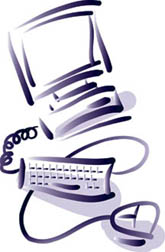| Tackling discrimination at work – my story
I was looking for a suitable office job for quite a while, paying a reasonable wage. Finally, I found a job. I was very confident and comfortable because I knew that the Access to Work (ATW) scheme would help me adjust to my new job — Access to Work provides workplace adaptations and support for disabled employees. After I started working, the promised adaptations took a very long time to come as the employer had to follow a procedure. Meanwhile, my employer blamed me for not being able to keep up with my workload, and called me to a meeting raising issues about the standard of my work. I felt very aggrieved and upset because the work environment was becoming unbearable and there was no support at all. Under this pressure and unfair scrutiny, I made mistakes which I would not have made under usual circumstances. I was feeling lost, but WinVisible supported me and encouraged me to contact the Equality Advisory Support Service to check my rights under equality law (because they were sure that the law is on my side), to find a union rep to support me, and also to contact a disability-specific organisation which might have experience of the kind of practical problems I was facing. All the support I got was from following up these suggestions. We also discussed in detail how I could answer the criticisms about my work at the meeting with my manager. ACAS, recommended by EASS, who deal with employee/employer relations, gave me some advice. I found a rule which said that no action can be taken against a disabled person unless and until the adjustments are made. The result of all this was, my employer did not issue any warning to me. I found out from WinVisible that I am not the only one who has faced these problems. Delays in getting Access to Work equipment in place are common, the Access to Work fund is too small, and “Stop Changes2ATW” are campaigning now against the limit on the hours Access to Work cover for a support worker or sign language interpreter. I would like to add that Access to Work equipment is only one part of what is needed for us to be able to do a job. On top of this, there should be a human element to make us feel secure, otherwise we are just experiencing discrimination again. I would say to other disabled women not to give up. |

